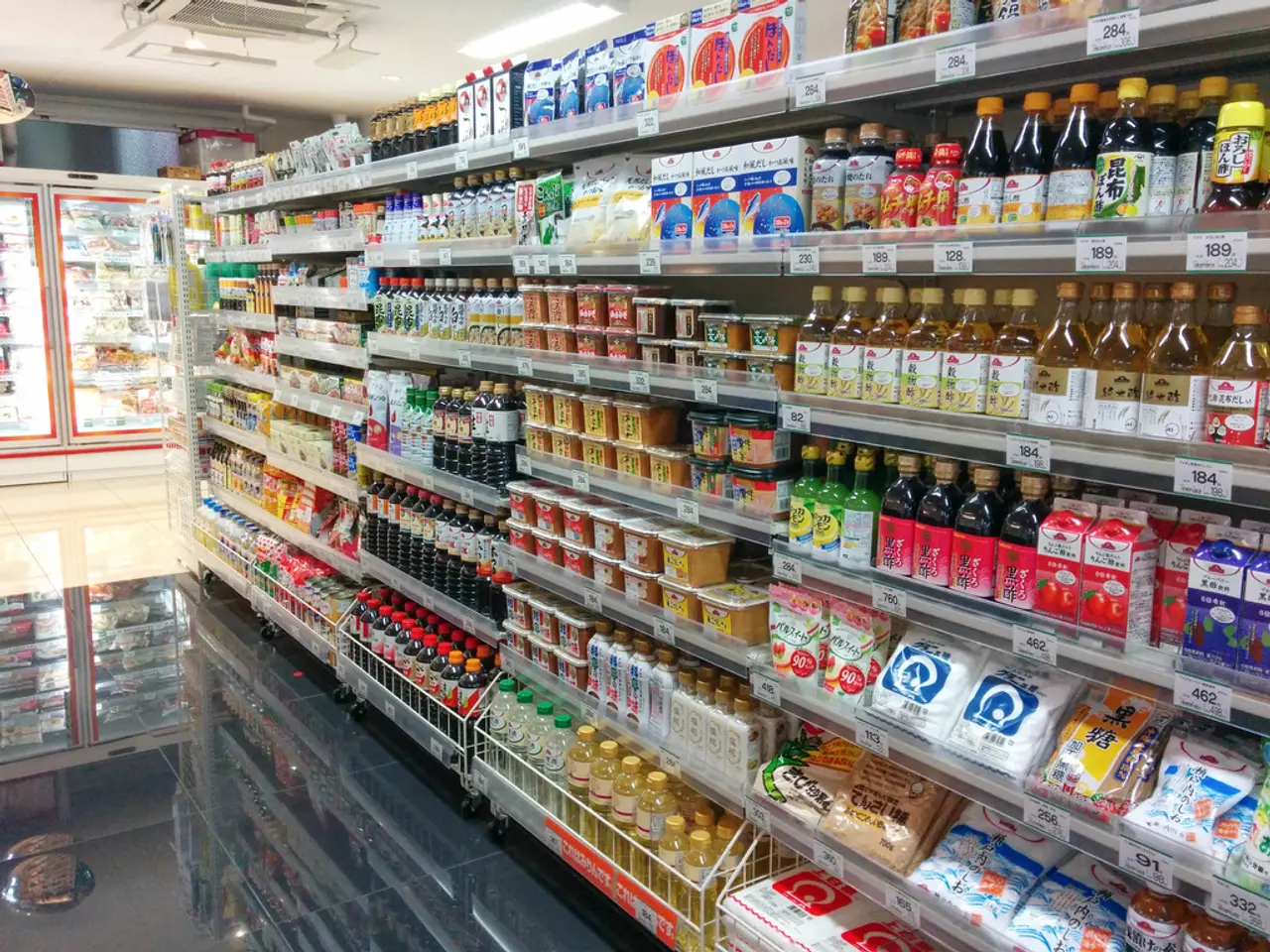Stable inflation as energy costs drop while service fees increase
In July 2025, Germany's inflation rate remained steady at 2.0%, marking the second consecutive month of stability and the lowest annual inflation rate in eight months. This stability is attributed to a balance between falling energy prices and moderate increases in services and food prices.
Energy prices saw a significant drop, decreasing by 3.4% year-on-year. Motor fuels, heating oil, electricity, and solid fuels all experienced reductions, with motor fuels down by 4.5%, heating oil falling by 5.0%, electricity prices decreasing by 2.0%, and solid fuels dropping by 5.3%.
On the other hand, services and food prices showed moderate increases. Services inflation eased slightly to 3.1%, despite some sharp increases in passenger transport (+11.3%), parcel delivery (+9.0%), and social facilities (+8.2%). Food inflation rose modestly to 2.2%, boosted by increases in fruit, sugar/confectionery, and dairy products.
Core inflation, which excludes food and energy, remained unchanged at 2.7%, indicating that underlying inflationary pressures did not accelerate further.
Month-to-month, the Consumer Price Index (CPI) rose moderately by 0.3% from June to July, primarily due to higher travel costs, including international flights (+12.7%) and package holidays (+10.7%), during the summer travel season.
However, international flights saw a decrease of -6.8% over the past year, while electricity and district heating became cheaper compared to the previous year. Fuel and household energy prices also decreased over the same period.
Prices for consumer goods rose by 1.1% and durable goods by 0.9%. Net cold rents increased by +2.0% in July 2025. Overall, prices rose by 1.0% from July 2024 to July 2025.
Non-alcoholic beverages (+7.5%) and tobacco products (+6.0%) saw significant price increases over the past year, while prices for fruits and sugar, jam, honey, and other sweets increased significantly from July 2024 to July 2025, with food prices being 2.2% higher in July 2025 compared to the previous year.
In contrast, mobile phones (-5.1%), information processing devices (-4.5%), and electrical household appliances (-2.6%) became cheaper over the past year. Telecommunications services also became slightly cheaper (-1.4%).
Services such as insurances (+5.8%), vehicle maintenance and repair (+5.7%), accommodation services (+4.1%), and water supply and other housing services (+3.9%) saw significant price increases compared to the previous year.
Natural gas prices increased slightly (+0.3%), but the overall energy product prices were 3.4% lower in July 2025 compared to the previous year.
The euro area inflation rate also remained stable at 2.0% during this period, suggesting broader regional inflationary trends that support Germany’s inflation stability.
Finance ministers in the euro area acknowledge the favorable impact on businesses due to the steady inflation rate, with the reduced energy prices helping to improve the overall economic climate. However, as food prices continue to rise moderately, especially for fruit, sugar, and dairy products, it's crucial for business sectors reliant on these commodities to remain financially cautious.




